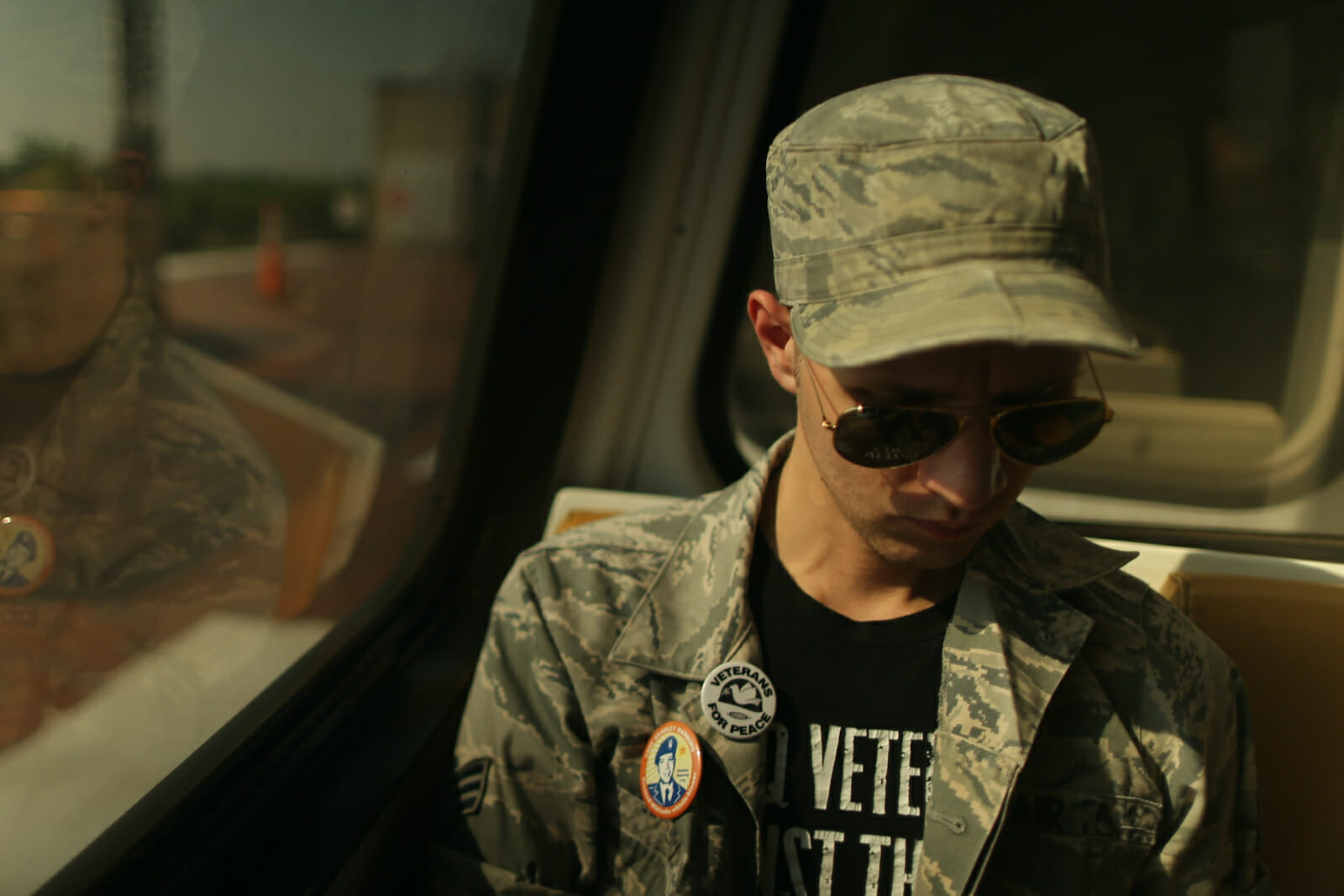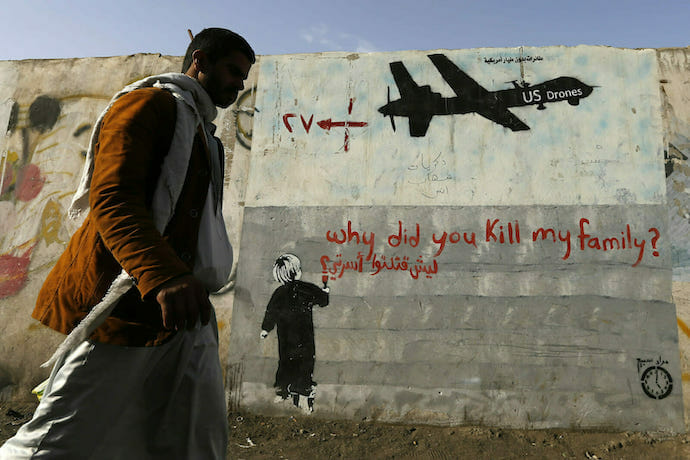
Papers Instead of Human Lives: The Sentencing of Daniel Hale
In May 2019, the US District Court for the Eastern District of Virginia, that famous bastion of anti-whistleblowing fervour, unsealed an indictment charging former intelligence analyst Daniel Hale with five counts of providing classified information to a reporter. The first four focused on obtaining national defense information, retaining and transmitting that information, causing the communication of that same information, and disclosing classified communications intelligence information. The fifth alleged the theft of government property.
Yet again, the US government was making use of the beastly Espionage Act of 1917. Between 2009 and 2013, Hale worked with the US Air Force and National Security Agency. He was then contracted by the National Geospatial-Intelligence Agency to work as a toponymist.
His work during his time in the NSA and as part of the Joint Special Operations Task Force – to identify targets for assassination for the US drone program – was performed at the Bagram Air Base in Afghanistan. His sin, or what his attorney Jesselyn Radack prefers to call “committing the truth,” was to reveal classified documents revealing the distinct viciousness, and essential senselessness, of the US military’s drone program. His motivation: “to dispel the lie that drone warfare keeps us safe, that our lives are worth more than theirs.”
The contribution made by Hale in revealing the costs occasioned by drone deployment is impossible to diminish. The documents, numbering some 150, showed how the policy of selecting targets was presumptuous rather than thorough. The targeting was also far from precise.
In the context of whistleblowing, the disclosure of the watchlisting rulebook became almost canonical in significance. According to Betsy Reed, the editor-in-chief of The Intercept, which prosecutors imply to have been the recipient of Hale’s trove, the rulebook detailed “the parallel judicial system for watchlisting people and categorizing them as known or suspected terrorists without needing to prove they did anything wrong.” Such rules, also applicable to US citizens, could be used to bar individuals from flying and permit their detention in airports and at borders “while being denied the ability to challenge government declarations about them.” As Reed reminds us, the disclosure of the book fuelled “dozens of legal actions and important court victories for the protection of civil liberties.”

In March, Hale pleaded guilty to one count. Defence attorneys Todd Richman and Cadence Mertz argued in their submission that altruistic motives, along with the fact that the government had adduced no evidence showing that actual harm had arisen from the leaks, should be taken into account in sentencing. “He committed the offense to bring attention to what he believed to be immoral government conduct under the cloak of secrecy and contrary to public statements of then-President Obama regarding the alleged precision of the United States drone program.”
In a handwritten letter to Judge Liam O’Grady, Hale describes a world of trauma, doubt, and mourning. There were the “bonding ceremonies” with peers over watching “war porn” featuring footage of previous drone strikes. “I sat by watching too; said nothing and felt my heart breaking into pieces.” There was the feeling of guilt as a defence contractor in participating in the “collective delusion and denial that was used to justify our exorbitant salaries.”
President Barack Obama’s remarks about the drone program again deserved a mention. The president had praised the certitude in such strikes and their cautious discrimination. “But from what I knew, of the instances where civilians plausibly could have been present, those killed were nearly always designated enemies killed in action unless proven otherwise.”
This was a form of war that could never claim to have a sliver of honour. “The victorious rifleman, unquestionably remorseful, at least keeps his honor intact by having faced off against his enemy in the battlefield,” Hale reflects. “But what possibly could I have done to cope with the undeniable cruelties that I perpetrated?”
In their sentencing papers, prosecutors Gordon Kromberg and Alexander Berrang countered by claiming that Hale’s actions enabled “the most vicious terrorists in the world” to obtain “documents classified by the United States as ‘Secret’ and ‘Top Secret’ – and thought that such documents were valuable enough to disseminate to their own followers in their own manuals.” Kromberg, just as he did with his efforts to extradite Julian Assange from the United Kingdom, has a rather fanciful view about what damaging the US national interest looks like.
The prosecutors even insisted that the harm caused by Hale was more severe than that of former NSA contractor Reality Winner’s disclosures. Winner’s sentence of five years was the harshest ever imposed on a whistleblower prosecuted for disclosing documents to a journalist in breach of the Espionage Act.
On July 27, Hale received his sentence of 45 months – less than Winner’s but brutal nevertheless. “I am here because I stole something that was never mine to take – precious human life,” he told US District Judge Liam O’Grady. “I couldn’t keep living in a world in which people pretend that things weren’t happening that were. Please, your honour, forgive me for taking papers instead of human lives.”
O’Grady’s remarks to Hale were full of the casuistry typical behind punishing whistleblowers. The gist here is that Hale could have done it differently. The prosecution had not thrown the book at him “for speaking out about the drone program killing innocent people.” “A majority of Americans would have commended you for coming forward.” Hale could well have remained a whistleblower “without leaking any of these documents, frankly.” A suggestion both implausible and foolish.
Using the press, in others, had been inappropriate, and probably the result of manipulation by the fourth estate. “I think you were motivated because of your conscience, but I also think you were motivated because of your desire to please the journalists.” The journalists in question “had to know you were facing almost certain prosecution, but they went forward and did what they did.” With such views as those held by O’Grady, the deep state will have every reason to crow with satisfaction.
Despite having little time for the avenue Hale took to manifest his concerns, the judge left room in his remarks to reproach the Air Force for the “inexcusable decision” of sending such a man to Afghanistan and assigning him the task of analysing video footage of drone strikes. Hale’s history of serious mental disturbance was ignored and his treatment, on returning, had been “a horrible injustice.”
The conviction and sentencing of Hale continues a tendency of successive administrations to target whistleblowers using a statute that negates the public interest defence. Altruistic motives are irrelevant to the means by which information is disclosed. In this case, exposing papers was far more serious to the imperium than the taking of human lives.
